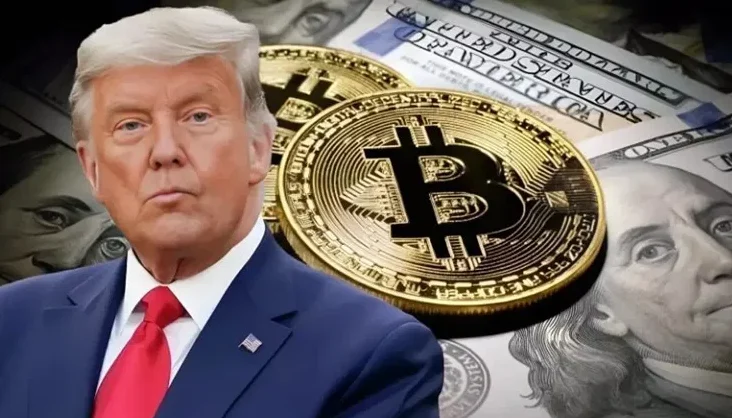Not only for his opinions on digital money but also for what his appearance suggests about the increasing alignment between the Republican Party, especially under Donald Trump’s renewed influence, and the cryptocurrency industry. Ohio Senator JD Vance is making headlines today as he delivers a highly anticipated keynote at a major Bitcoin event.
Former venture entrepreneur and political activist Vance is an outspoken advocate for blockchain and distributed finance innovation. His attendance at the Bitcoin conference demonstrates that digital assets have become a political tool, not merely a technological innovation. This evolution aligns with the Trump campaign and a potential future government’s ties to crypto leaders, creating a political narrative that may impact US digital asset ownership.
JD Vance at Bitcoin Summit
The Bitcoin event where JD Vance is speaking today goes beyond just a meeting of GOP crypto embrace aficionados. Attracting financial influencers, blockchain developers, legislators, and institutional investors, it is a crucial forum. Rising regulatory constraints, questions about CBDCs (central bank digital currencies), and a volatile market still healing from the FTX fall and changing SEC rules form the backdrop.
Vance’s keynote should include Bitcoin as a counter to inflation, the competitiveness of U.S. financial innovation, and the dangers of overly aggressive regulations. Given the audience’s composition, his statement is likely to have repercussions not only for crypto markets but also for policy orientation ahead of the 2024 election.
Trump Embraces Crypto
Investors and political experts have both noticed Donald Trump’s shifting stance on cryptocurrencies. Initially sceptical, the former president has now adopted digital assets as part of a broader deregulation program. Starting to accept crypto donations, Trump’s campaign marks a degree of institutional acceptability that would have appeared improbable only a few years ago.

Trump has met with executives from Coinbase, Ripple Labs, and Riot Platforms. These linkages suggest that Secretary Gary Gensler might make a second Trump administration more crypto-friendly than the Biden administration, which has taken a cautious, enforcement-heavy approach under the SEC Chairman.
JD Vance Backs Crypto
It is hardly accidental that JD Vance attended the Bitcoin conference. He is a Silicon Valley-experienced senator and Trump ally who links conservative values to digital innovation. Blockchain firms have been supported by Vance’s venture capital company, Narya Capital, therefore enhancing his reputation in that field.
His support of blockchain aligns with broader Republican principles, such as personal liberty, limited government control, and economic freedom. Should a Republican-dominated Congress emerge in 2025, Vance may become a key player in drafting crypto-friendly laws, such as tax changes, regulatory sandboxes, and pro-mining energy measures.
Republicans Embrace Crypto
Other Republicans have also expressed rising support for cryptocurrencies outside of JD Vance and Donald Trump. Framing CBDCs as a means of financial monitoring, Florida Governor Ron DeSantis has aggressively opposed them. Legislators Ted Cruz and Cynthia Lummis have co-sponsored proposals aimed at clarifying crypto rules and protecting Bitcoin mining businesses.
This mounting political momentum highlights a distinct difference in the digital asset policies of the Democratic and Republican parties. Republicans are emphasising innovation, decentralisation, and national competitiveness, while Democrats focus on investor protection and systemic risk.
Crypto Regulation at a Crossroads in 2024
The 2024 presidential contest is likely to be a pivotal moment for the United States’ control of Bitcoin. Claiming to prioritise investor protection and financial stability, the Biden administration’s SEC and CFTC have initiated regulatory proceedings against crypto exchanges and token issuers.

Under the influence of advisers like JD Vance, a Trump administration may veer toward a more liberal regulatory environment. Clearer frameworks for token classification, banking access for GOP crypto embrace companies, and reversal of enforcement-first rules might all help here. Vance’s talk today will likely highlight these gaps and underline the need for regulatory stability and new incentives to retain blockchain expertise and money in the US.
Bitcoin’s Growing Political Symbolism
The function of Bitcoin has evolved from a purely financial tool to a symbol of both political and cultural significance. Proponents argue that it marks liberation from central bank policies and the depreciation of fiat money. because Critics worry about its environmental damage and encouragement of illegal trafficking. JD Vance’s attendance suggests that Bitcoin is becoming an ideological compass, especially within the GOP. GOP crypto embrace by Vance and Trump attracts tech-savvy, economically libertarian voters.
Crypto Markets Rally on Vance’s Support
After Vance’s announcement of attending the Bitcoin conference, a few blockchain-related stocks and tokens saw minor increases. Under a pro-crypto government, market observers believe this might be a reflection of investor hope about upcoming regulatory relief.
Leaders in the sector have also expressed backing. Blockchain Association praised Vance’s “pro-innovation, pro-freedom stance,” while Coinbase’s Brian Armstrong called political participation “vital to the future of Web3.” These sponsorships reflect a government-cryptocurrency corporate collaboration that might impact financial policy.

